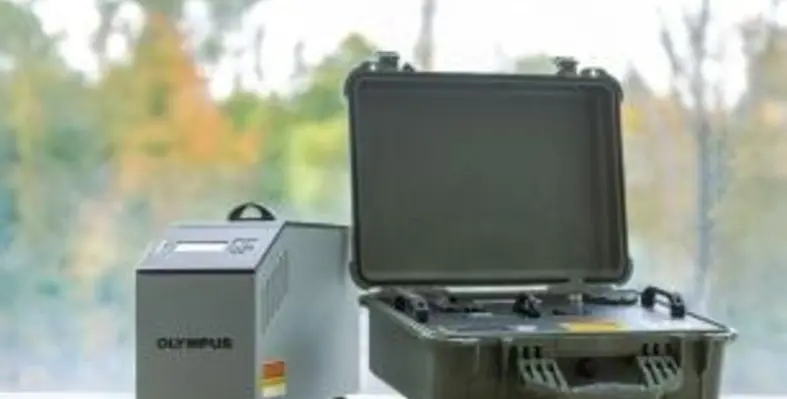The Olympus next-generation TERRA II and BTX III mobile X-ray diffraction (XRD) analysers offer faster quantitative mineralogy results in the field and lab
The XRD instruments feature SwiftMin software, which provides automated mineral/phase ID and quantification in real time directly on the analyser. The intuitive software interface comes with time-saving features, including:
One dashboard for data to see results, calibration and analysis information to speed up workflow.
Wireless capabilities to get real-time results and operate the instrument using wireless-capable device.
Automatic data transfer to automatically send data to the network when the operator hits stop or after a preset amount of time.
Easy data export to export quantitative mineralogy/phase ID results for visualisation or further data analysis and access raw data files using a network folder to analyse diffractograms.
In conventional XRD instruments, a large quantity of sample must be finely ground and pressed into a pellet. Ideally crystallites must be randomly oriented, yet samples prepared for conventional XRD typically suffer from preferred orientation effects. In contrast, the TERRA II and BTX III analyzers feature a unique small sample holder to provide a portable, lightweight and virtually maintenance-free alternative to conventional XRD.
The patented vibrating sample holder convects all particles within the sample chamber, removing almost all orientation effects. As a result, the instruments require a mere 15 mg sample, which operators can easily obtain using the supplied sample kit.
Olympus’ TERRA II XRD instrument is the successor to the first commercial battery-operated, portable XRD in the world. Featuring a battery life up to six hours and a rugged, weatherproof case, the TERRA II system is built for fast in-field analysis. The BTX III offers the same analytical performance in a compact design intended for benchtop laboratory analysis.












